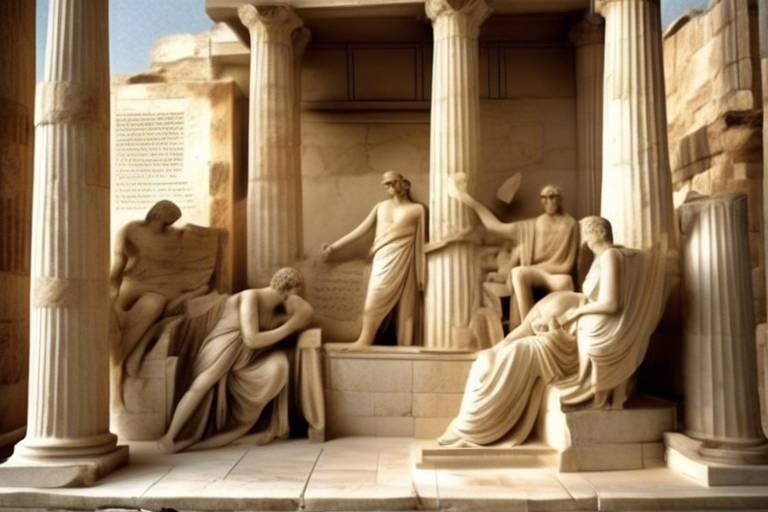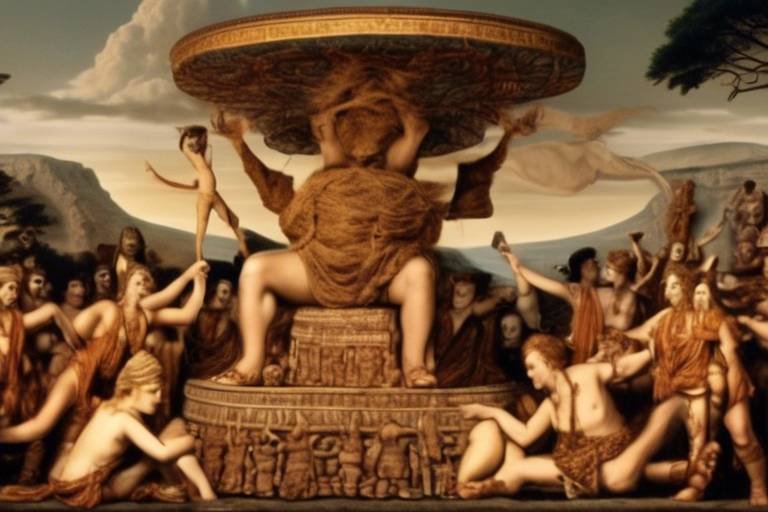The Influence of Ancient Greek Literature on Modern Writing
Ancient Greek literature stands as a towering pillar in the history of storytelling, casting a long shadow that continues to influence and inspire modern writers across various genres. The works of renowned Greek writers like Homer, Sophocles, and Euripides have left an indelible mark on contemporary literature, shaping not only the themes explored but also the very essence of storytelling itself.
Delving into the rich tapestry of ancient Greek literature, one can uncover a treasure trove of mythological themes that have seamlessly transcended time and found a new home in modern storytelling. Greek myths and legends, with their fantastical worlds and complex characters, serve as a wellspring of inspiration for contemporary writers seeking to weave narratives that captivate and enthrall readers.
One cannot overlook the profound impact of Greek tragedy on modern storytelling. The structured and emotionally charged nature of Greek tragedies has been reimagined and adapted in various forms, from plays to novels to films, allowing audiences to experience the raw power and depth of human emotions explored by ancient playwrights.
The archetype of the hero's journey, a fundamental element in ancient Greek epics, continues to resonate in modern stories, serving as a blueprint for protagonists embarking on transformative quests in literature and popular culture. The timeless appeal of the hero's journey lies in its ability to mirror the trials and triumphs of the human experience, making it a staple in storytelling across generations.
Philosophical ideas espoused by ancient Greek thinkers such as Plato and Aristotle have left an enduring imprint on modern writing, shaping ethical dilemmas, worldviews, and moral quandaries explored in contemporary literature. The intellectual legacy of these philosophers continues to spark debates and reflections in the literary landscape of today.
Symbolism rooted in Greek mythology serves as a powerful tool for modern writers to convey deeper meanings and universal truths in their work. By drawing on symbols and allegories from ancient myths, authors infuse their storytelling with layers of significance that resonate with readers on a profound level, transcending mere words on a page.
The evolution of poetic expression from ancient Greek forms to contemporary styles highlights the dynamic nature of poetry as an art form. Contrasting the techniques and themes employed by ancient Greek poets with those of modern poets offers a glimpse into the ever-changing landscape of poetic innovation and creativity.
The enduring legacy of Greek drama reverberates in modern theater, where elements of tragedy and dramatic structure continue to shape the narratives unfolding on stage. The influence of ancient Greek playwrights can be seen in the nuanced performances, thematic explorations, and emotional depth portrayed in contemporary theatrical productions.
In the digital age of the 21st century, ancient Greek texts find new life as they are interpreted, adapted, and reinterpreted by writers, scholars, and artists alike. The reception of ancient Greek literature in modern times speaks to the timeless allure and relevance of these timeless works, reshaping the literary landscape and enriching the cultural tapestry of today.
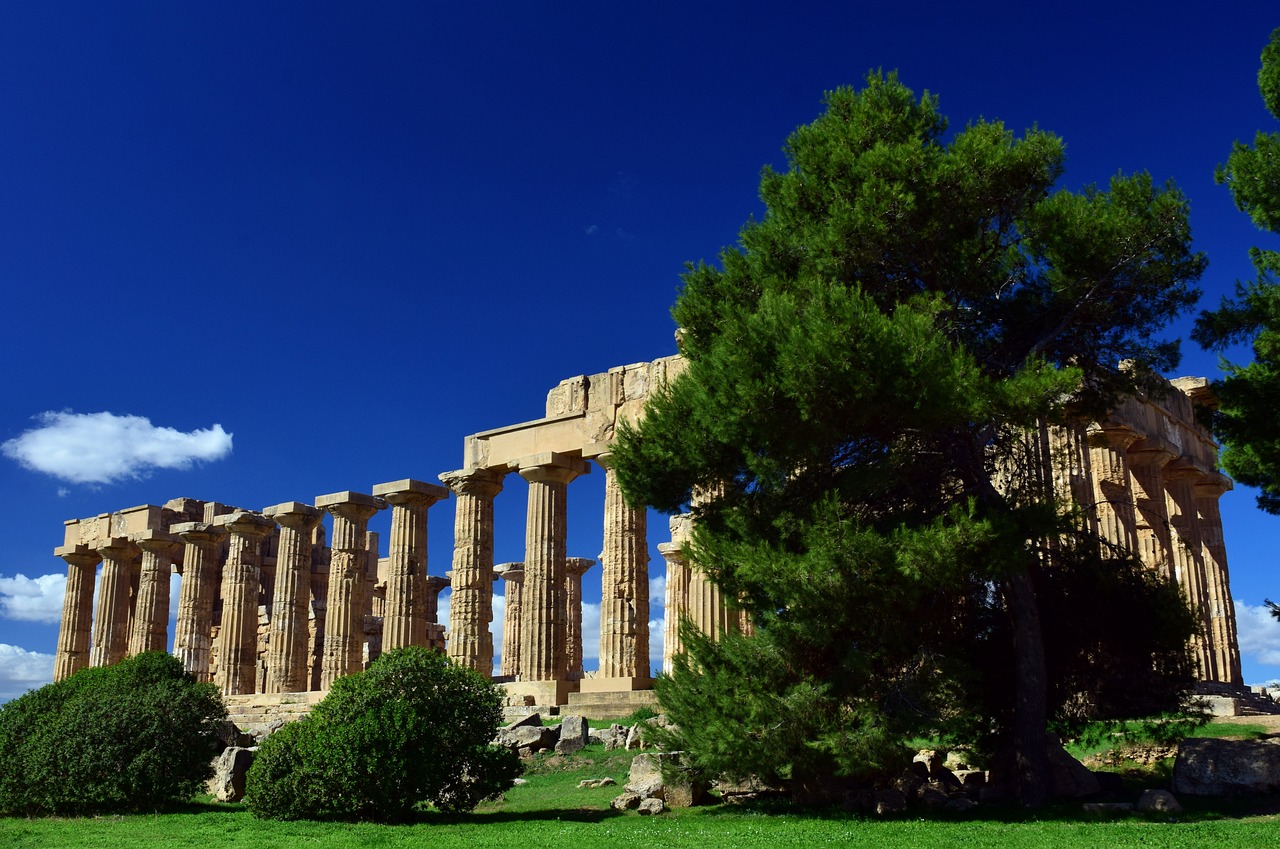
Mythological Themes in Modern Literature
Mythological themes from ancient Greek literature have woven their way into the tapestry of modern storytelling, enriching narratives with fantastical elements and timeless archetypes. Writers today continue to draw inspiration from the epic tales of gods and heroes, infusing their works with a sense of wonder and mystery that captivates readers across generations.
These myths serve as a wellspring of creativity, offering a treasure trove of characters and motifs that resonate with contemporary audiences. From the tragic fate of Oedipus to the epic adventures of Odysseus, the themes of love, betrayal, and redemption found in Greek mythology provide a rich backdrop for exploring the complexities of human nature and the struggles of the human condition.
Moreover, the enduring popularity of mythological themes in modern literature speaks to the universal appeal of these ancient stories. Whether retold in a traditional setting or reimagined in a futuristic world, the power of myth transcends time and culture, offering readers a glimpse into the collective imagination of humanity.
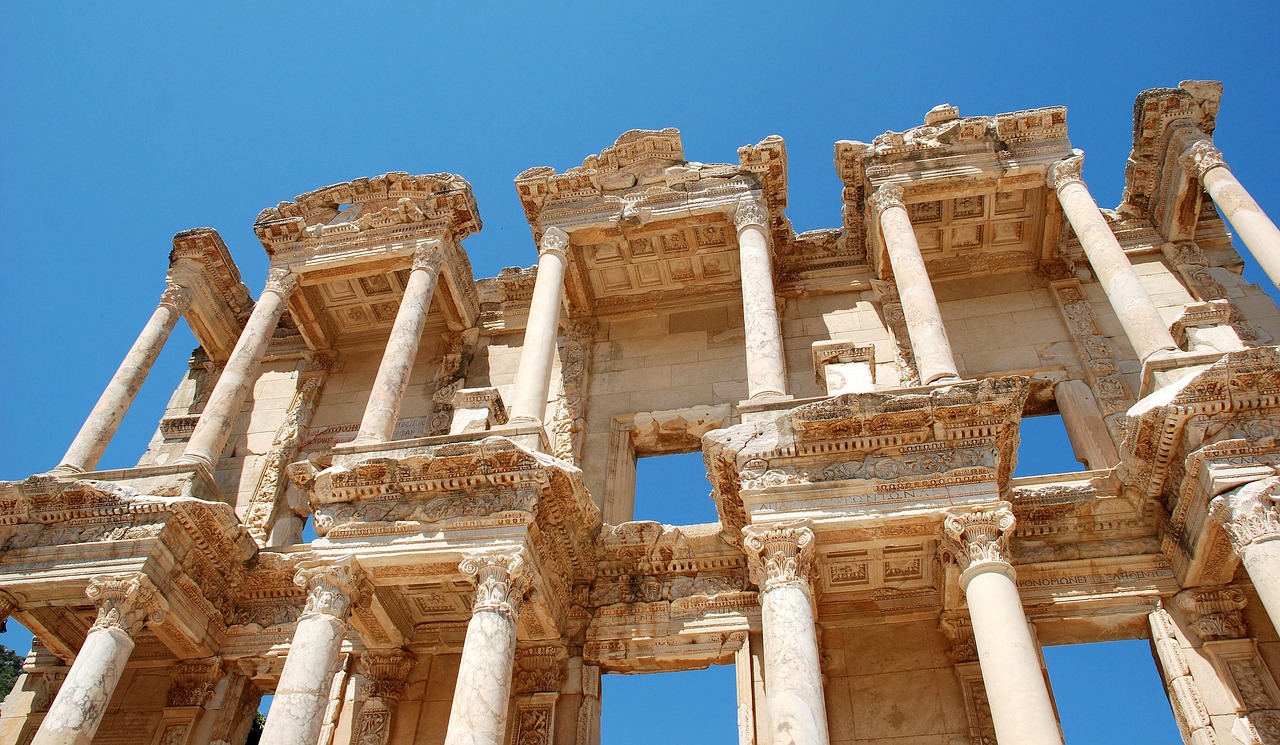
Greek Tragedy and Its Impact
Greek tragedy, with its powerful narratives and profound exploration of human emotions, has left an indelible mark on modern literature and storytelling. The works of renowned playwrights like Sophocles and Euripides have not only entertained audiences for centuries but have also served as a source of inspiration for contemporary writers and artists.
The structure and themes of Greek tragedies, characterized by the downfall of a tragic hero due to their fatal flaw, have been reimagined and adapted in various forms of modern art. From classic plays to modern novels and even blockbuster films, the essence of Greek tragedy continues to captivate audiences with its timeless portrayal of human suffering and redemption.
One of the key impacts of Greek tragedy on modern storytelling is the emphasis on complex characters and moral dilemmas. The flawed yet heroic figures in ancient Greek dramas have influenced the creation of multi-dimensional characters in contemporary literature, adding depth and authenticity to the narrative.
Moreover, the themes of fate, free will, and the consequences of one's actions explored in Greek tragedies resonate with modern audiences, highlighting the universal aspects of human experience across different time periods and cultures. The tragic elements of Greek drama, such as hubris and catharsis, continue to be employed by writers and filmmakers to evoke profound emotional responses from their audiences.
Through the adaptation and reinterpretation of Greek tragedy, modern artists have been able to explore complex psychological and moral dilemmas, pushing the boundaries of storytelling and challenging the audience to reflect on the deeper aspects of the human condition. The enduring legacy of Greek tragedy serves as a testament to the power of storytelling to transcend time and connect people across generations.
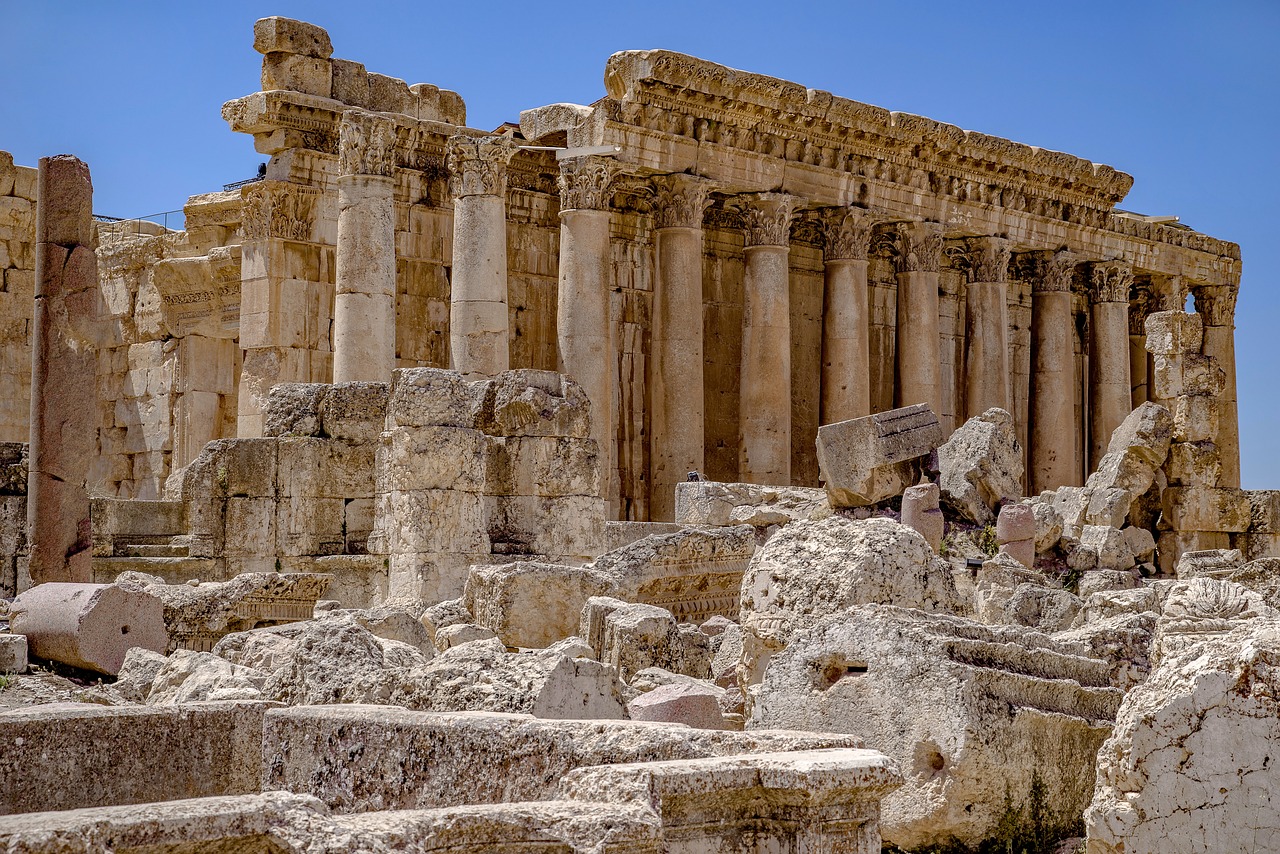
The Hero's Journey in Modern Stories
The hero's journey, a timeless narrative pattern deeply rooted in ancient Greek epics, continues to captivate audiences in modern storytelling. This archetypal structure, popularized by Joseph Campbell, follows a hero as they embark on a transformative adventure, facing trials, overcoming obstacles, and ultimately achieving personal growth and enlightenment. In contemporary literature and popular culture, this monomyth remains a powerful tool for crafting compelling and relatable stories that resonate with readers and viewers alike.
One of the key elements of the hero's journey is the call to adventure, where the protagonist is beckoned to leave their ordinary world and embark on a quest. This foundational stage sets the hero on a path of self-discovery and growth, mirroring the epic journeys of legendary figures in Greek mythology such as Odysseus and Hercules. Through their trials and tribulations, modern heroes face internal and external challenges that test their resolve and character, echoing the moral dilemmas and conflicts found in ancient Greek epics.
As the hero progresses through the stages of the journey, from encountering mentors and allies to facing formidable foes and undergoing a symbolic death and rebirth, audiences are drawn into a narrative rich with symbolism and universal themes. The hero's transformation mirrors the human experience of facing adversity, embracing change, and emerging stronger and wiser—a narrative arc that has resonated across cultures and generations.
Moreover, the hero's journey serves as a template for exploring profound philosophical and existential questions about the nature of heroism, destiny, and the human condition. By tracing the hero's evolution from ordinary individual to extraordinary champion, modern stories draw upon the moral complexities and ethical dilemmas that have long fascinated audiences since the time of ancient Greece.
Through the hero's journey, contemporary writers and storytellers pay homage to the enduring legacy of ancient Greek literature, infusing their works with the timeless wisdom and narrative depth found in the epics of Homer and the tragedies of Sophocles. By embracing this archetypal structure, modern stories continue to echo the heroic quests and moral dilemmas that have captivated audiences for centuries, reminding us of the enduring power of myth and the universal truths embedded in the human experience.

Philosophical Influences on Modern Thought
When delving into the realm of modern writing, it is impossible to ignore the profound philosophical influences that ancient Greek thinkers have had on shaping contemporary thought. The ideas of renowned philosophers like Plato and Aristotle continue to resonate in today's literature, ethics, and overall worldview. These philosophical giants laid the groundwork for exploring fundamental questions about existence, morality, and the nature of reality, which are still prominent themes in modern writing.
Through their philosophical musings, the ancient Greeks provided a framework for examining the complexities of human experience and the intricacies of the human psyche. Concepts such as justice, virtue, and the pursuit of knowledge have been recurrent motifs in literature inspired by their teachings. Writers often draw upon these philosophical principles to create narratives that challenge readers to contemplate the deeper meanings behind human actions and societal norms.
Moreover, the philosophical underpinnings of ancient Greek thought have not only influenced the content of modern writing but also the style and structure of literary works. The emphasis on rationality, logic, and critical thinking that characterized the works of Plato and Aristotle can be seen in the analytical approach taken by many contemporary writers. This intellectual legacy has shaped the way in which authors craft their arguments, develop their characters, and construct their narratives.
Furthermore, the exploration of existential questions and the search for meaning in a chaotic world are themes that can be traced back to the philosophical inquiries of ancient Greek scholars. Modern writers often grapple with issues of identity, mortality, and the human condition in a manner that reflects the existential angst prevalent in the works of thinkers like Socrates and Epictetus. The enduring relevance of these philosophical themes underscores the timeless nature of ancient Greek wisdom.
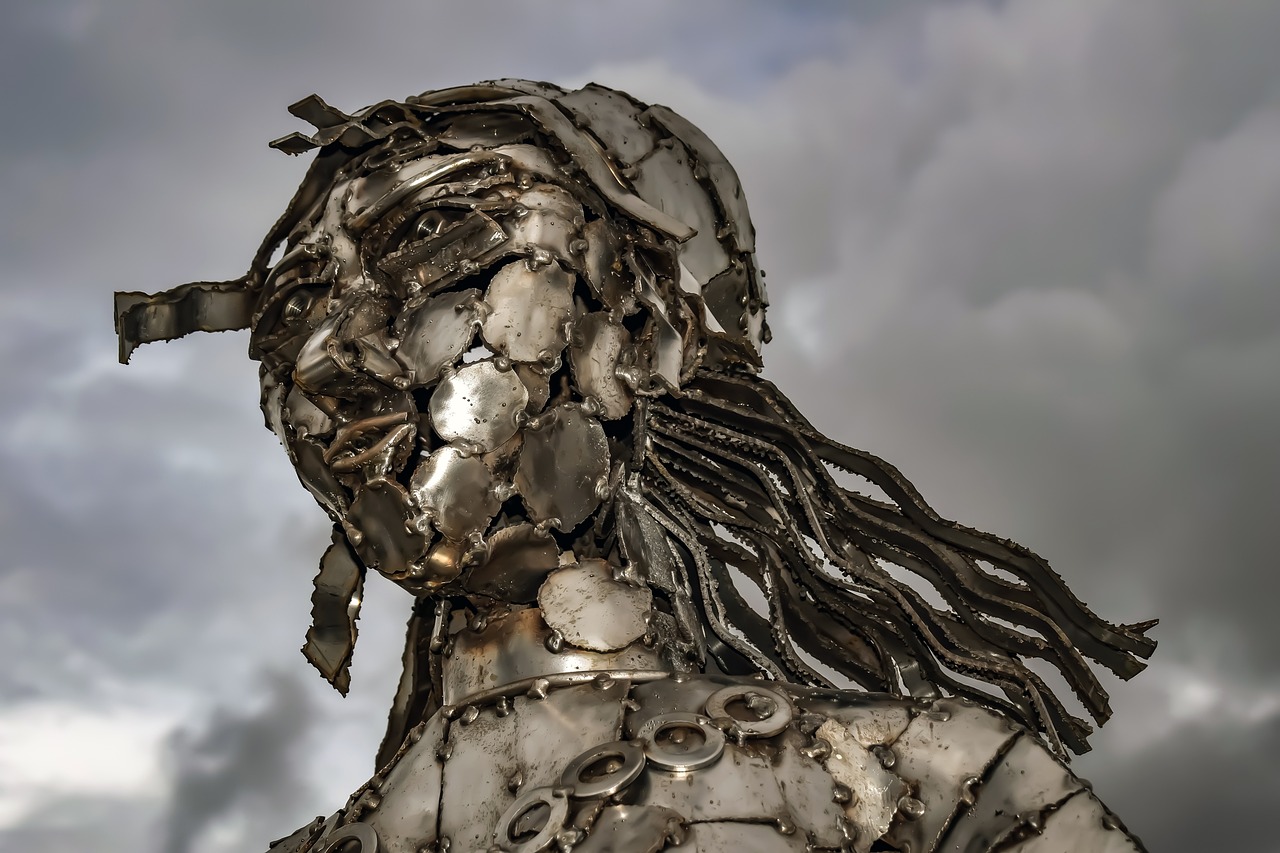
The Use of Greek Mythology in Symbolism
Greek mythology has long been a wellspring of symbolism for modern writers, offering a rich tapestry of allegorical meanings and universal truths. The gods and goddesses of ancient Greece have been utilized as symbols representing various aspects of human nature and the world around us. For example, Zeus, the king of the gods, often symbolizes power and authority, while Athena, the goddess of wisdom, embodies intellect and strategy.
Furthermore, mythical creatures such as the Hydra or the Minotaur have been employed as symbols of inner struggles or societal challenges. These symbolic representations from Greek mythology add depth and complexity to modern literary works, allowing writers to explore profound themes and convey hidden messages to their audience.
In addition to individual deities and creatures, Greek myths themselves serve as powerful symbols in literature. The tale of Icarus, for instance, symbolizes the dangers of hubris and overreaching ambition, cautioning against the perils of unchecked pride. Similarly, the story of Pandora's box is often used as a symbol of curiosity and the consequences of exploring the unknown.
By drawing on the rich symbolism of Greek mythology, contemporary writers infuse their works with layers of meaning that resonate with readers on a deeper level. These symbolic references create a bridge between ancient wisdom and modern storytelling, enriching narratives with timeless themes and enduring truths.
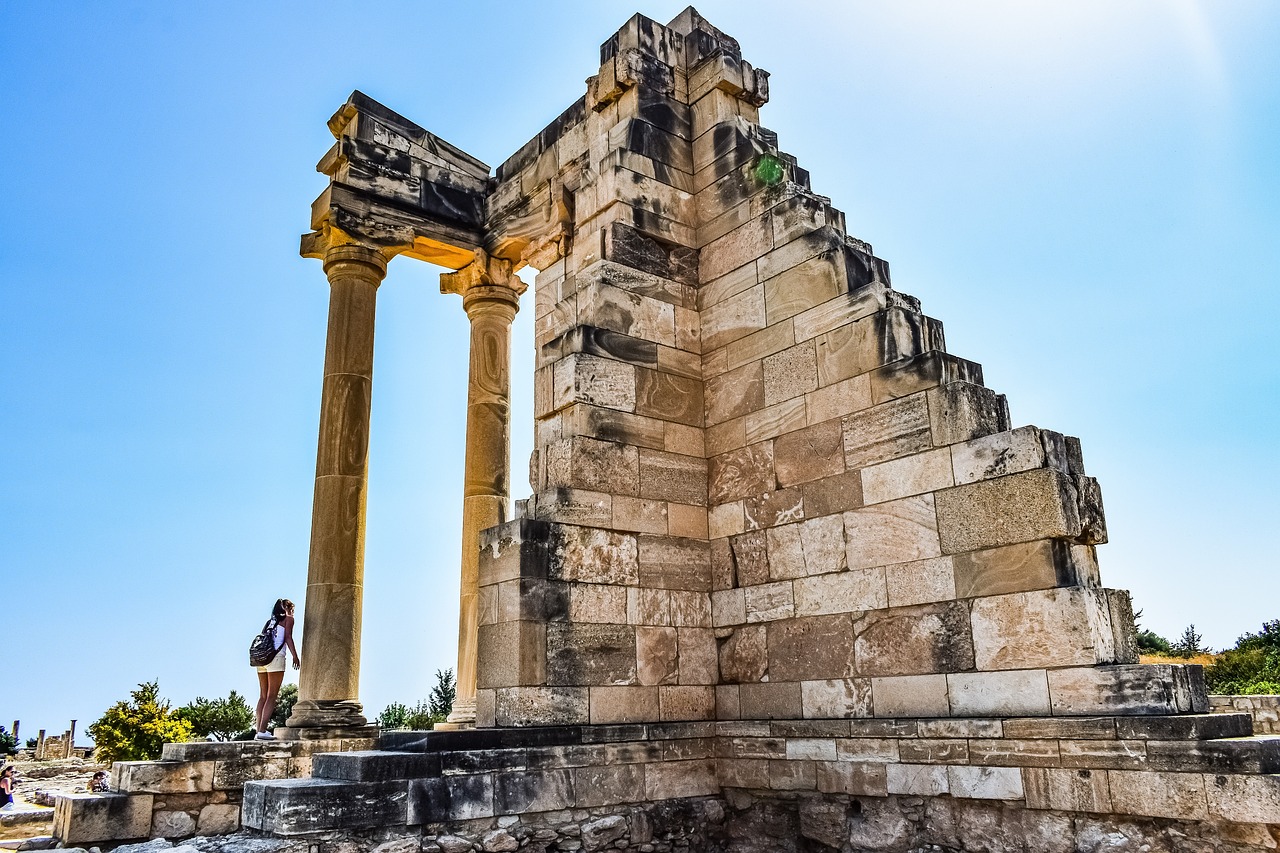
Comparing Ancient and Modern Poetic Forms
When comparing ancient Greek poetic forms with modern poetry, it becomes evident that both share a deep-rooted focus on the expression of emotions, thoughts, and experiences through the power of language. Ancient Greek poets, such as Homer and Sappho, utilized structured forms like epic poetry and lyric poetry to convey their narratives and emotions. These poetic forms often adhered to strict metrical patterns and rhyme schemes, emphasizing the musicality of the language.
In contrast, modern poets have embraced a more diverse and experimental approach to poetic expression. Free verse, for example, has become a prominent form in contemporary poetry, allowing poets to break away from traditional constraints and explore innovative ways of crafting language. Modern poets often prioritize individuality and self-expression, using unique imagery and unconventional structures to convey their messages.
Furthermore, ancient Greek poetry frequently focused on themes of heroism, love, nature, and the divine, drawing inspiration from mythology and folklore. These themes were often intertwined with moral lessons and philosophical reflections, reflecting the cultural values and beliefs of the time. In comparison, modern poetry explores a wide range of subjects, from personal experiences and social issues to abstract concepts and existential questions.
Despite these differences, both ancient and modern poetic forms share a common goal: to evoke emotions, provoke thought, and create a lasting impact on the reader. Whether through the structured elegance of ancient Greek verse or the free-flowing creativity of contemporary poetry, poets throughout history have used language as a tool for exploring the complexities of human existence and the beauty of the world around us.
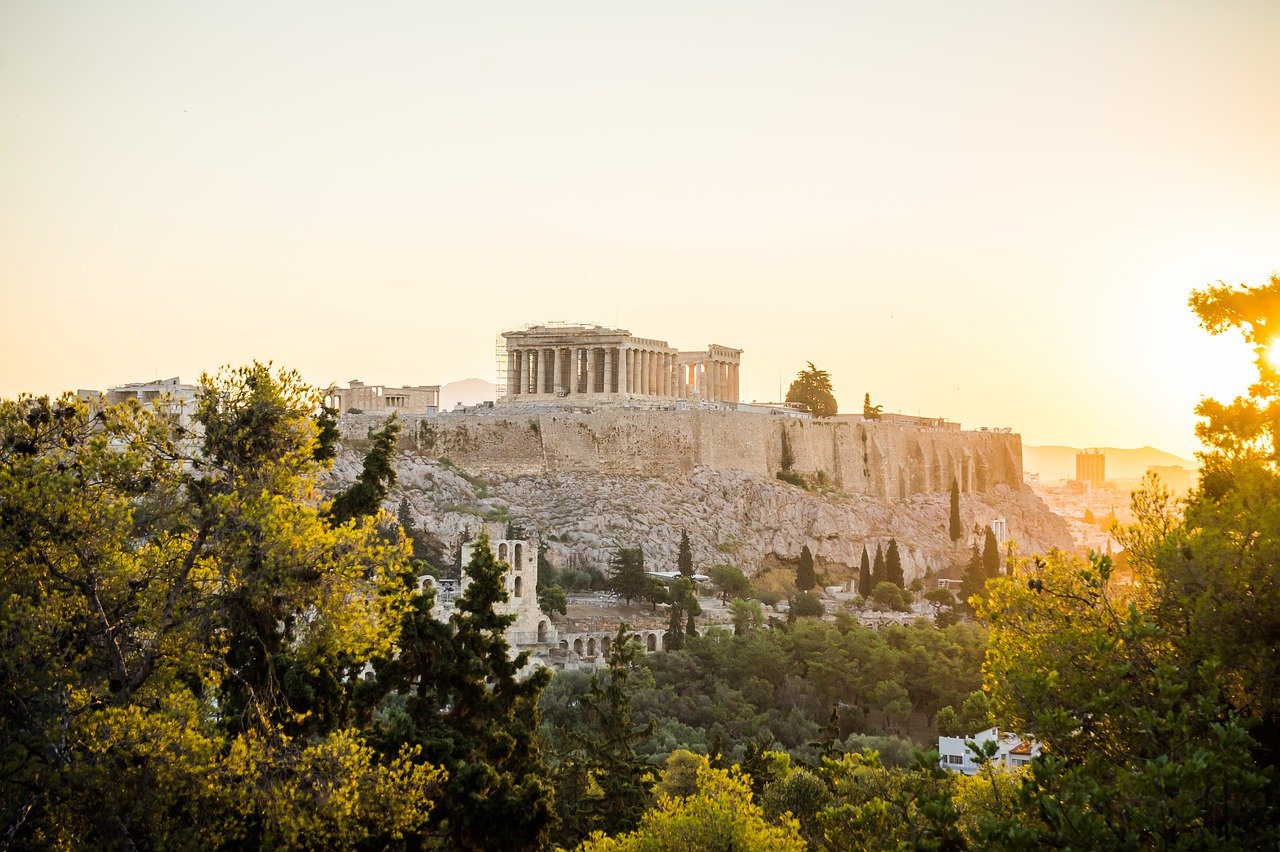
Ancient Greek Drama and Contemporary Theater
Ancient Greek drama holds a timeless allure that continues to captivate audiences and influence contemporary theater. The rich tradition of Greek theater, with its exploration of human nature, emotions, and moral dilemmas, serves as a wellspring of inspiration for modern playwrights and directors. The legacy of renowned playwrights like Aeschylus, Sophocles, and Euripides reverberates through the centuries, shaping the dramatic landscape of today.
One of the key elements that ancient Greek drama contributes to contemporary theater is the use of tragic elements. The concept of hubris, fate, and the inevitable downfall of tragic heroes are themes that have been seamlessly integrated into modern plays and performances. The structure of Greek tragedies, with their emphasis on catharsis and moral lessons, continues to inform the construction of compelling narratives on the stage.
Moreover, the dramatic structure of ancient Greek plays, including the use of choruses, masks, and symbolic gestures, has left an indelible mark on modern theatrical productions. The incorporation of heightened language, dramatic irony, and complex character interactions can be traced back to the theatrical conventions established by Greek dramatists.
Contemporary theater often pays homage to Greek drama through adaptations and reinterpretations of classic works. The themes of love, betrayal, power struggles, and the complexities of human relationships explored in ancient Greek plays resonate with audiences today. By revisiting and reimagining the timeless stories of antiquity, modern theater breathes new life into age-old tales, infusing them with fresh perspectives and innovative staging techniques.

Reception of Ancient Greek Literature in the 21st Century
As we step into the 21st century, the reception of ancient Greek literature continues to be a fascinating subject of exploration and reinterpretation. The timeless tales penned by legendary Greek writers have found new life in the digital age, captivating modern audiences and shaping contemporary literary trends.
With the advent of technology and the widespread accessibility of information, ancient Greek texts have been digitized and made available to a global audience. This digital revolution has enabled scholars, writers, and enthusiasts to delve into the depths of Greek literature, uncovering hidden gems and shedding new light on classic works.
Moreover, the 21st century has witnessed a resurgence of interest in classical studies, leading to a renewed appreciation for the rich cultural heritage of ancient Greece. From online courses to interactive platforms, the study of Greek literature has become more accessible and engaging than ever before, sparking a renaissance in the way we perceive and interpret these age-old masterpieces.
Contemporary writers and creators have also drawn inspiration from ancient Greek literature, incorporating themes, motifs, and characters into their own works. By reimagining and adapting Greek myths, tragedies, and epics, modern storytellers pay homage to the enduring legacy of Greek literature while infusing their narratives with fresh perspectives and innovative twists.
Furthermore, the reception of ancient Greek literature in the 21st century extends beyond academia and artistic endeavors. The moral dilemmas, existential questions, and philosophical musings found in Greek texts resonate with modern readers, prompting introspection and contemplation on timeless themes such as fate, free will, and the human condition.
In essence, the reception of ancient Greek literature in the 21st century is a testament to the enduring power and relevance of these ancient texts. As we navigate the complexities of the modern world, the wisdom and insights gleaned from Greek literature continue to illuminate our path, guiding us through the labyrinth of human experience with timeless grace and profound wisdom.
Frequently Asked Questions
- What is the significance of ancient Greek literature in modern writing?
Ancient Greek literature has had a profound impact on modern writing by influencing themes, characters, and narrative structures. Writers often draw inspiration from Greek epics, tragedies, and philosophical ideas to create compelling and timeless works.
- How do Greek myths and legends continue to influence modern literature?
Greek myths and legends provide a rich source of inspiration for contemporary writers, allowing them to create fantastical worlds and complex characters. These ancient stories are often reimagined and adapted to resonate with modern audiences.
- What is the hero's journey archetype and its presence in modern stories?
The hero's journey archetype, popularized in ancient Greek epics, remains a prevalent narrative structure in modern literature and popular culture. It follows the journey of a protagonist facing challenges, growth, and transformation.
- How are symbols and allegories from Greek mythology used in modern literature?
Symbols and allegories from Greek mythology are frequently employed in modern literature to convey deeper meanings and universal truths. These timeless symbols add layers of complexity and significance to contemporary works.
- What is the influence of ancient Greek drama on contemporary theater?
Ancient Greek drama continues to influence modern theater through its use of tragic elements and dramatic structure. The themes and storytelling techniques from Greek plays are often reinterpreted to create impactful and engaging theatrical performances.

